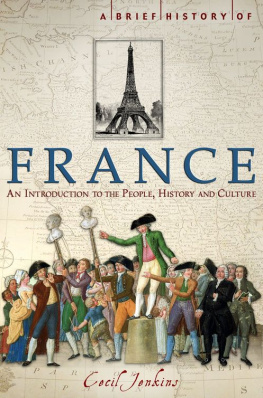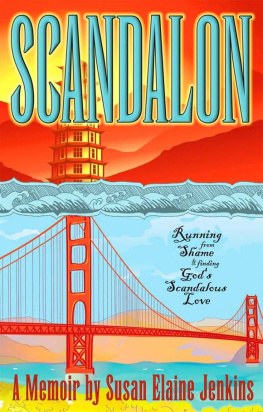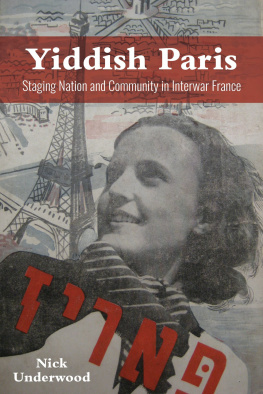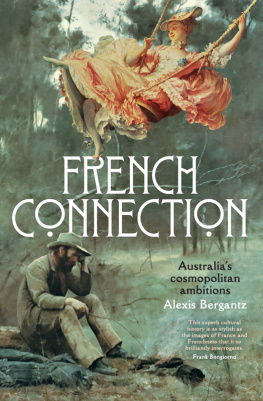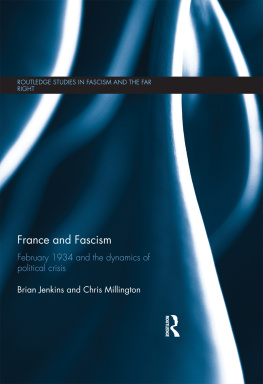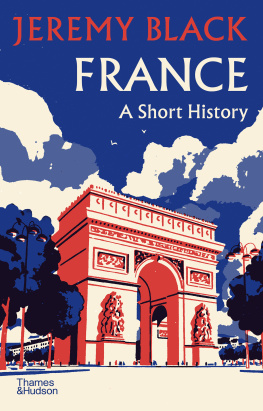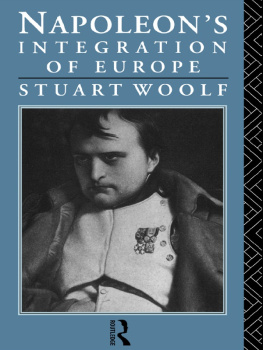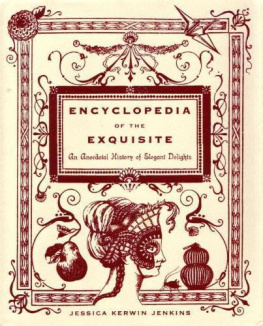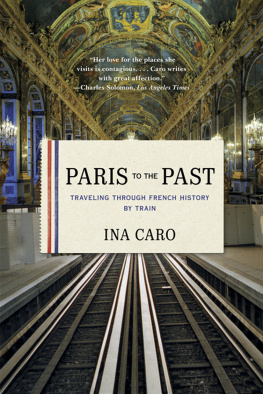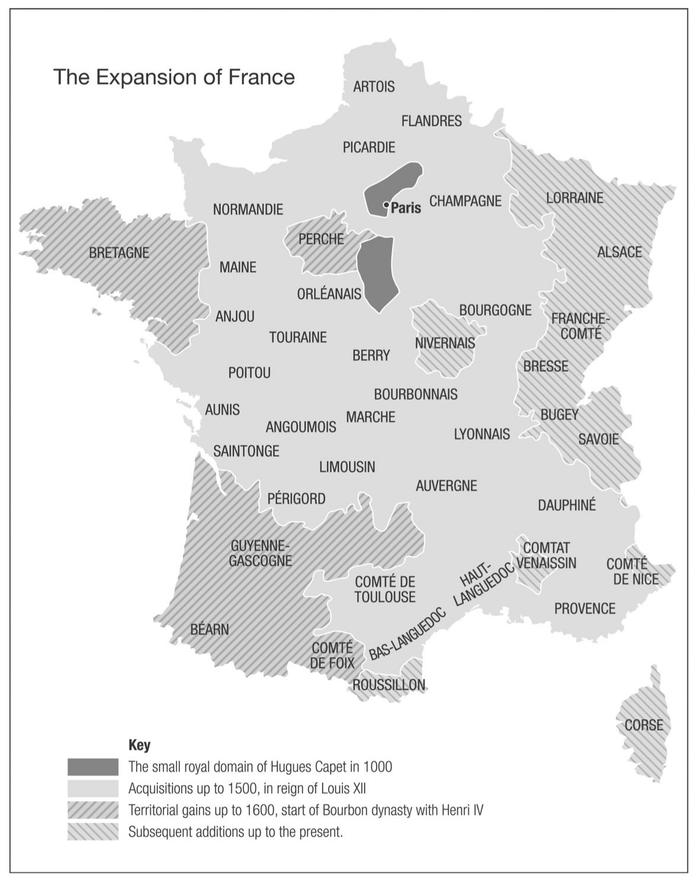Why a history of France? What does it tell us? About the France of today, about Europe about ourselves?
That there is widespread interest in France goes without saying, since it is the most visited tourist destination in the world. Of course, it has the attraction of a highly advanced country, with an excellent infrastructure, which yet offers a sense of space and rural charm. It is after all the largest country in Europe, with extensive plains, forests and mountain ranges, as well as splendid beaches on two contrasting coastlines. Since it stretches from northern to southern Europe, it also offers considerable climatic and regional diversity from Normandy to the Cte dAzur, and from Brittany with its Celtic heritage to the Germanic picturesqueness of Alsace in the east. Yet beyond all this, the attraction for many is a longstanding idea of France, an almost mythical view of the country seen through a prism in which historical and cultural associations merge with the idea of a specific lifestyle.
There are the reflections triggered by Louis XIVs bedchamber at Versailles, the gloomy Conciergerie in Paris which was the last stop for those due to be guillotined under the Terror, Napoleons tomb in the Invalides, the vast cemeteries of immaculate graves of those killed in the two world wars. There are also the many heritage sites from the Roman monuments of Arles or Orange, through the great medieval cathedrals of Amiens or Chartres, to the royal palaces of Fontainebleau or Chambord and a whole complex of buildings in Paris, ranging from the glise de la Madeleine to the cole Militaire. And then of course there is the richness of the art, from the mysterious cave paintings of the Dordogne to the Louvre or the striking new Muse des Arts Premiers. The importance of French painting of the nineteenth and twentieth centuries can be measured by the fact that the basic terms used in modern art Impressionism, Art Nouveau, Fauvism, Surrealism are French. More recently, France has developed the strongest cinema industry in Europe and produced both modern film theory and the influential New Wave of directors such as Jean-Luc Godard or Claude Chabrol.
However, this idea of France, which to a degree is a myth of Paris, is also seen as distinguishing the French lifestyle. It combines the idea of refinement with simplicity. You may have traditional high French fashion, with its household names like Pierre Balmain or Yves Saint Laurent, but you also have the shop assistant who can effortlessly achieve elegance through a certain sense of self or a way with a scarf. French cuisine may be renowned for its sophistication, but the passion for food of a country that runs to 246 different kinds of cheese is visible in every village. For staid Edwardians as for inter-war Americans, the City of Light was also the city of love in which they found emotional self-expression. For those English people who move to the French provinces today, as for others before them, France has seemed to offer freedom from the constraints and complexities of post-industrial society, a more natural lifestyle, in fact a kind of alternative civilization. That is indeed how the former president Chirac tended to present his country, in opposition to materialistic Anglo-Saxon society. But, since those buying French houses are essentially buying them from locals abandoning the provinces to look for work or greater amenities in the cities, are they looking for a traditional way of life that is dying? Are they pursuing an illusion?
Not that the Anglo-Saxons have ever had a very clear view of the French or vice versa. Britain and France have been close rivals for centuries, which is why the English, notoriously, love France but not the French. They tangled in the dynastic struggle of the Hundred Years War, there was the religious conflict after England became Protestant, the British opposition to the Revolution, the prolonged Napoleonic Wars, fierce colonial rivalry right up to the Entente Cordiale of 1904 and mutual suspicion thereafter. Closely comparable in importance still today, as nuclear powers, members of the Security Council and with their economies jostling for fifth rank in the world each became the mirror image of the other, a bte noire. So the British traditionally saw the French as foppish, cowardly and none too clean, while the French equally happily saw the British as perfidious, brutal and arrogantly opportunist. And while in recent times the hostility has subsided, the two countries have adopted opposing economic models, with the British at least until the recent recession raised some doubts tending to see France as strike-bound and over-regulated and the French viewing Britain as a laissez-faire unequal society.
Inevitably, as the competing power in the West became the United States rather than Britain, a similarly ambiguous anti-Americanism overtook French Anglophobia. France had of course supported the American Revolution, but the US opposed Frances colonial aims, did not join the League of Nations, withdrew from European involvement after the First World War and initially supported Vichy rather than de Gaulle, while the very fact that it saved France politically and economically after the Second World War reinforced the sense of dependency on this powerful new social and cultural model so different from Frances own. So the French, however defensively, now saw the United States as a new kind of shallow, materialistic society destined to dominate the world, while the Americans especially after France refused to support the invasion of Iraq tended to see the French as pretentious, ungrateful and cowardly. Of course there is a lovehate element to these anxieties and popular prejudices but, comical as they can seem, they do not make for understanding.
To understand the France of today it is necessary to understand its historical development. To understand the French concern for their republican social model you have to go back to the Revolution; to understand the structure of education you have to go back to Napoleon; to have any sense of the power of Racinian drama you have to grasp the tensions in the world of Louis XIV; to understand the development of the language you have to go back to Roman Gaul. The fact that France has had such a dramatic history oscillating between revolution and reaction, clericalism and secularism, left and right does not derive from temperament . It derives from Frances geographical position on the continent of Europe with enemies on all sides, so that the French identity has been conditioned by a whole series of conflictual relationships with Ancient Rome, the Holy Roman Empire, Italy and the Vatican, Germany and Spain as well as by imperial rivalry with Britain and the US.
Frenchness is largely a historical construct, as indeed is the country itself, for the present neat hexagon developed over centuries in an essentially unplanned fashion and was only completed with the return of Alsace-Lorraine after the Second World War. And French national feeling, in a country where barely 10 per cent of the inhabitants spoke French before the Revolution, is largely the effect of Napoleonic conscription and the introduction of free schooling with patriotic indoctrination by the Third Republic . But underlying these changes there are significant, often ironic continuities as when the central importance of the State which differentiates France so markedly from Britain and the US persists despite apparent contradiction across quite different regimes, from absolute monarchy through the Revolution and Napoleonic empire up to the Fifth Republic of today.

